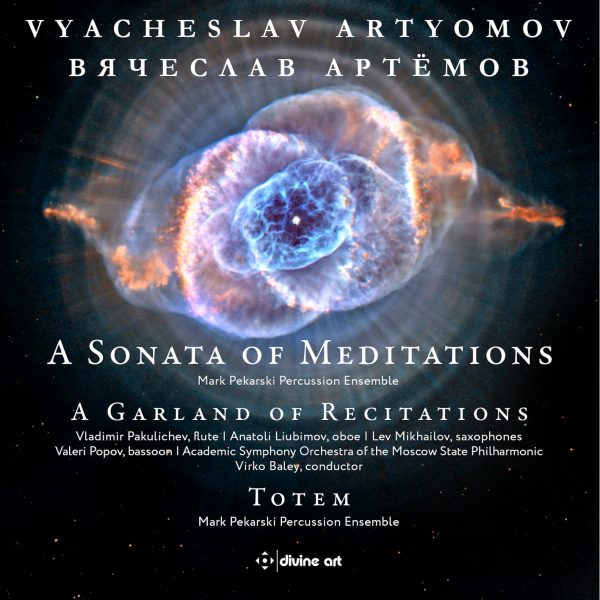MusicWeb International
Artyomov is one of a group of Russian and East European composers – others include Kancheli, Silvestrov and Pärt – who grow up in the days of the Soviet empire, discovered European modernism and went on to forge individual and distinctive idioms. They also each tend to be the object of a cult. I was very taken with a disc of Artyomov I had for review last year so am glad to have been able to hear more of him.
[This disc] features two works for percussion alone. One of the modernist composers Artyomov admires is Varèse, and in these works we can hear the influence of Varèse’s Ionisation of 1931, one of the first works in the Western tradition for percussion alone. A Sonata of meditations is in four movements and requires four players (Varèse required thirteen). Morning meditation features fragmentary phrases and bell sounds. Afternoon meditation concentrates on rhythm and has some impressive timpani glissandi. Evening meditation sounds like a recreation of Bartók’s night music in which a marimba is prominent; there are also some striking spatial effects. Midnight meditation is an irregular dance. The whole work takes you through a cycle of moods linked to the times of the day and I found it compelling.
The other percussion work here, Totem, is for six players and is much shorter. It is also earlier. This has terrific rhythmic drive. I was surprised at one point to hear our old friend the Dies irae appearing. However, the work seemed to me not completely coherent and the longer Sonata is preferable.
Between these two comes A Garland of Recitations. Four soloists, on, respectively flute, oboe, saxophones (of various sizes) and bassoon take it in turns to deliver a long solo in front of the orchestra, whose role is largely confined to sustaining long-held chords. For me, this was an interesting idea which long outstayed its welcome.
The disc was originally recorded in the 1980s but has been expertly remastered and sound well. Most of the tracks were previously issued by Melodiya, but two of them are said to have come from private recordings held by the composer. There is no discernible difference in quality with these. The sleeve notes are by Robert Matthew-Walker, who has written a book on the composer and is the leading English authority on him. These are helpful, but they are a bit lacking in some basic facts, such as dates. The very striking covers are an attractive feature of this series.
Artyomov is an interesting, indeed impressive composer, though I would resist some of the claims made for him. He is certainly worthy to be considered alongside the three other composers I mentioned at the start. I have yet to hear his Requiem, which is the work which made his reputation. Well worth exploring.
[edited from joint review of several albums]
@divineartrecordingsgroup
A First Inversion Company
Registered Office:
176-178 Pontefract Road, Cudworth, Barnsley S72 8BE
+44 1226 596703
Fort Worth, TX 76110
+1.682.233.4978












